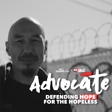
Your Brain on Porn: The Hidden Link Between Pornography & Human Trafficking | S6, E4
In this powerful and eye-opening episode of the Trafficking Free America podcast, produced by the U.S. Institute Against Human Trafficking (USIAHT) and Kids Not For Sale, we dive deep into the psychological, emotional, and societal impacts of pornography—and its critical connection to sexual exploitation and human trafficking.
Host Jeremy Hicks is joined by:
- Alan Teixeira, a former buyer and recovered sex addict
- David Hudson, counselor and president of the Sexual Integrity Project
- Christy Collins, advocate and counselor for betrayed women
Together, they confront taboo truths that will challenge what you think you know.
⏱️ Timestamps:
00:00 – Introduction to the Podcast & Guests
02:05 – Why Talk About Pornography?
05:02 – How Porn Impacts the Brain (Dopamine, Dependency, & Isolation)
07:35 – The "Perfect Drug": Secrecy, Accessibility & Impact on Real-Life Relationships
10:16 – Porn’s Impact on Marriages: Trust, Distance & Intimacy
12:12 – The Bonding Hormone Vasopressin & Why It Matters
15:09 – When Porn Addiction Starts in Childhood
18:24 – Binge-Purge Cycles: Is It Still Addiction?
22:01 – The Cycle of Addiction Explained
25:01 – Can Normalizing Sex Help or Harm?
27:40 – Porn’s Impact on Sexual Satisfaction with a Spouse
29:02 – The “Death Spiral” in Relationships
30:55 – Real vs. Synthetic Intimacy: The Long-Term Cost
32:08 – Dealing with Entitlement & Recovery Challenges
35:21 – Neuroplasticity & Healing the Brain from Addiction
38:14 – What’s the Difference Between Dependency & Addiction?
44:06 – Pure Desire Research: Why Sex with Your Spouse is 5x More Satisfying
45:12 – Porn as a Form of Sex Buying
46:05 – Does Infrequent Porn Use Still Matter to a Spouse?
48:07 – How Porn Use Affects Executive Function & Maturity
50:04 – Where Real Hope Begins: Repentance, Healing, & Identity in Christ
54:05 – Shame, God’s Love, and the Road to Recovery
55:06 – Preview: Resources to Break Free from Porn & Sex Addiction
This is more than a conversation about porn—it's a candid look at the spiritual, neurological, and relational fallout of a normalized addiction. Whether you're struggling yourself, know someone who is, or just want to understand the real cost behind "harmless" clicks, this episode is a must-listen.
👉 Stay tuned for Part 2, where we cover practical resources for recovery and freedom.
🔔 Don’t forget to like, share, and subscribe to join the movement for a Trafficking Free America.
#TraffickingFreeAmerica #PornAddiction #HumanTrafficking #SexualIntegrity #KidsNotForSale #USIAHT #StopTheDemand #RecoveryIsPossible

![The Best Ways to Support a Safe Home [REPLAY] | Safe Home Series, Part 4 image](https://media.zencastr.com/cdn-cgi/image/width=112,quality=85/image-files/640a1493181f834e694b13d6/20777798-06ea-438b-8fe4-26e91f8b685e.png)

